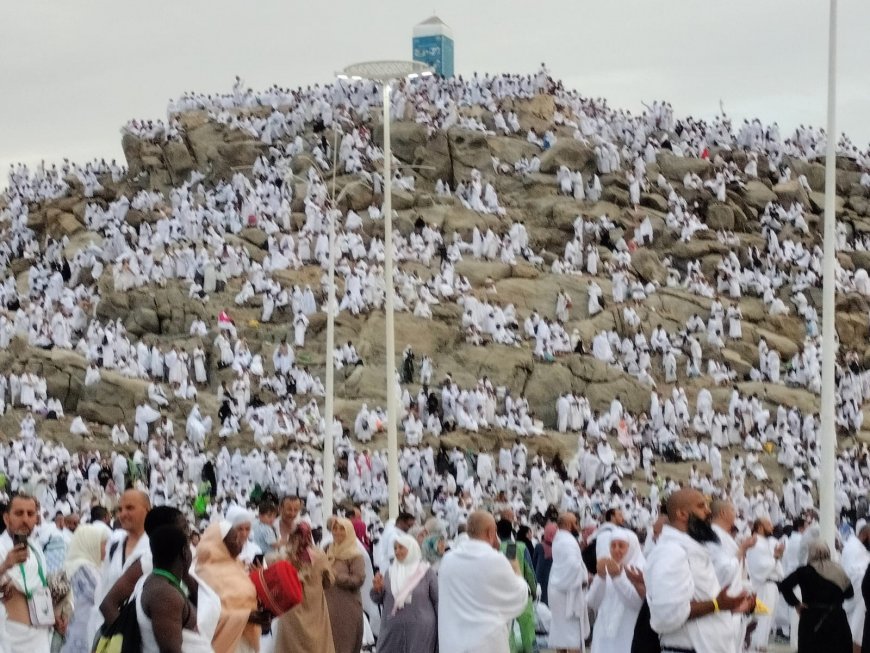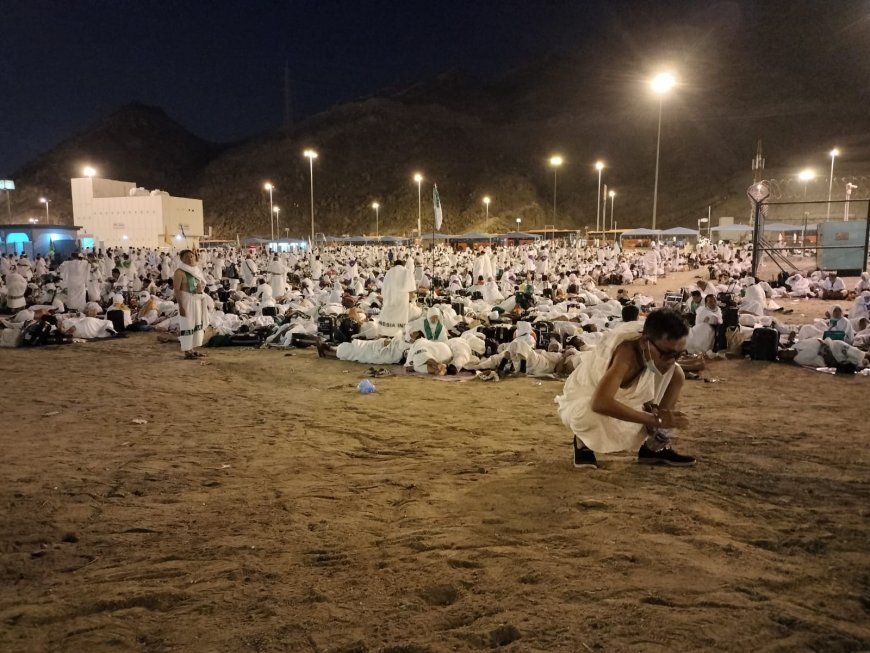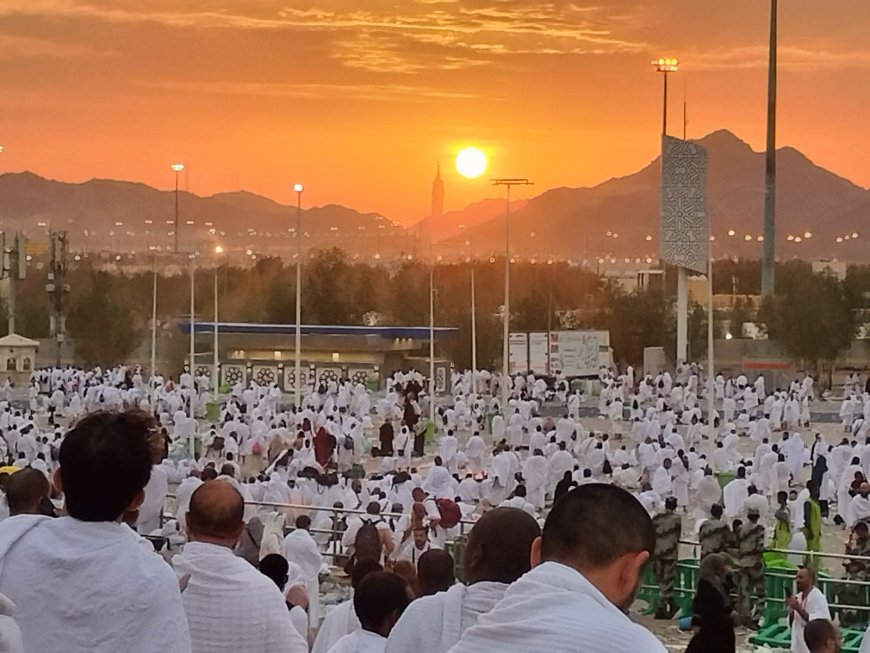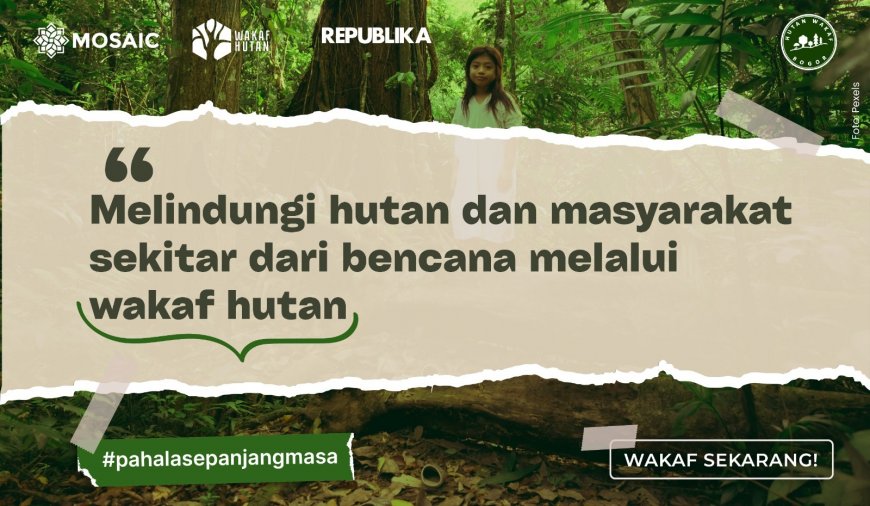It's Time to 'Greening' Hajj
At least 68,000 tons were collected during the 12 days of Hajj in 2023

Soon, Muslims from all over the world will perform Hajj in the Holy Land, Mecca, Saudi Arabia. About two million Muslims are expected to gather to perform the Hajj on June 8-17, 2024.
Gathering millions of people at the same time and place often has an impact on the environment. Saudi Arabia's publisher Saudi Gazette reported that at least 68.000 tons wastes were collected during the 12 days of Hajj in 2023. This includes food boxes and plastic bottles that are often consumed by worshippers during lodgings and in tents while in Arafah, Muzdalifah and Mina (Armuzna).
During Armuzna, Indonesian pilgrims get 16 meals. Therefore, the number of rice boxes given to about 221 thousand Indonesian pilgrims is about 3.5 million boxes. The waste generated by Indonesian pilgrims is significant. In addition to food, the need for water and electricity also increases, so does the amount of fuel needed.

To solve this problem, the Environment Assembly of Muhammadiyah encourages Muhammadiyah residents throughout Indonesia and the general public to get acquainted with the concept of green hajj. Rijal Ramdani, Chairman of the Green Ramadan Committee of MLH PP Muhammadiyah said the moment of Hajj that brought millions of Muslims from all over the world to environmental problems. In his opinion, the problems of plastic bottles, garbage, water use and electricity are serious problems. In this regard, Muhammadiyah can be a pioneer to endorse environmentally friendly Hajj.
“Every year at least two million Muslims perform the Hajj. Indonesia became the largest country with 241,000 worshippers. This gives rise to environmental consent (Garbage, electricity and water use), what if Muhammadiyah can spearhead to be able to encourage the implementation of green hajj,” Rijal said in an online discussion of MLH PP Muhammadiyah.
Director General of Hajj and Umrah at the Indonesian Ministry of Religious Affairs Hilman Latief said that Hajj is a long process consisting of preparation, process and impact. Therefore, the impact of Hajj should be emphasized on the benefits of the afterlife and the world.” Hajj is a very heavy worship in terms of preparation, process and impact. So the Hajj should have an afterlife benefit for spiritual, fellowship and benefit the world in economic value and improve the socio-humanitarian aspect,” Hilman explained.

The Hajj performance involves many aspects. Every year around 70 trillion of money is spent for the needs of pilgrims such as food, shelter, transportation and other accommodation. According Hilman, the emphasis of the benefits of the world in question is how Hajj not only benefits its pilgrim who become 'mabrur'.
The organization of Hajj pilgrim can also be directed to impact the economic and socio-humanitarian aspects of Indonesian society.” The study of hajj in Indonesia, especially Muhammadiyah still touches on the realm of mabrur. Whereas in Arabia it has touched the realm of business (Social-social impact). So this Hajj should bring benefits in all aspects,” Hilman said.
Green hajj includes efforts of halal industries, Haji-umrah tourism and sustainability. Hilman outlined that there are two aspects that can be done to support the implementation of green haj, namely green economy and green attitude. To achieve a green economy is supported by capable infrastructure and economic quality. Indonesia has abundant resources but is not yet supported by capable infrastructure from upstream to downstream.
He was very sorry for the Hajj worship process, which has not been able to improve the level of Indonesia's economy. Hilman mentioned that there are many items of Hajj necessities that cannot be entered by the SFDA (Arab Food Self-Reliance Agency). Those items cannot be entered because many do not meet a set standard license. This opportunity has been taken advantage of by other countries.
While the concept of green attitude refers to the environmentally friendly behavior of Indonesian hajj pilgrims. According to Hilman, the behavior of Indonesian pilgrims cannot be separated from the profile of Indonesian society in terms of profession and educational level. The profile largely determines the life behavior of the people during the Hajj worship process. Therefore, the profile has a great influence on the application of green hajj. So the implementation of the green hajj must be balanced with the needs and conditions of the community.
“To achieve a green economy, we need adequate infrastructure. We have abundant resources, but not for infrastructure. Whereas other countries already have. The profile of Indonesian hajj pilgrims has also influenced the implementation of green hajj. Then this mechanism needs to be balanced,” says Hilman.
Hilman also explained that the implementation of green hajj can be done by applying environmentally friendly mechanisms in its implementation. The implementation of eco-friendly Hajj can be directed at the reduction of environmental risks, the avoidance of ecological scarcity and at sustainable development. He also called for MLH PP Muhammadiyah to have a specific focus on eco-friendly Hajj education to Indonesians.
“Hajj must have ecological reinforcement and environmental friendliness. It can start from Greener Hajj dormitory environment, eco-friendly Hajj economic ecosystem, use of zero waste lifestyle products, healthy food. MLH can prioritize educational issues in raising the green hajj prayer,” he said.







